Culture & Tradition
“UNFINISHED GREATNESS – Towards a more Perfect Union in Nigeria” By Dr. Kayode Fayemi
Published
5 years agoon
By
admin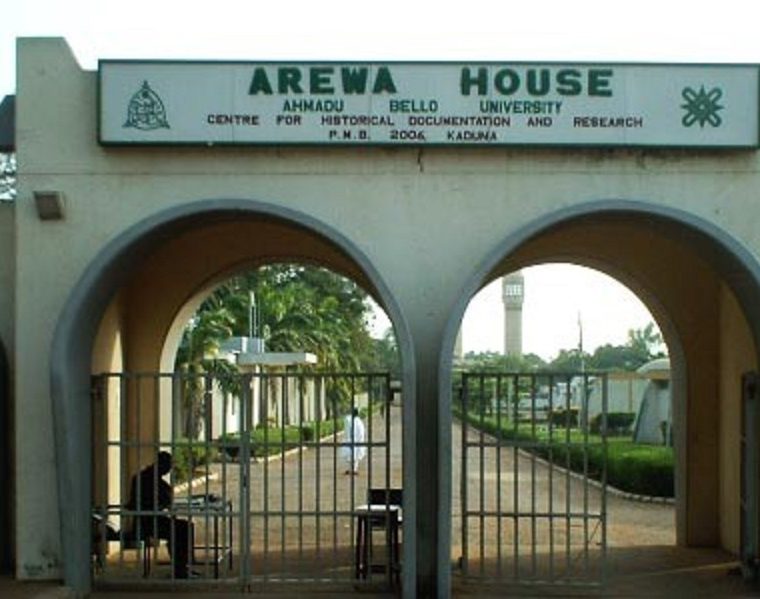
“UNFINISHED GREATNESS…Towards a more Perfect Union in Nigeria”
Text of the Address by His Excellency Dr. Kayode Fayemi, CON Governor, Ekiti State, Nigeria Chairman, Nigeria Governors’ Forum on the 50th Anniversary of the Centre for Historical Documentation and Research (Arewa House) Kaduna, Nigeria Saturday, October 31, 2020.
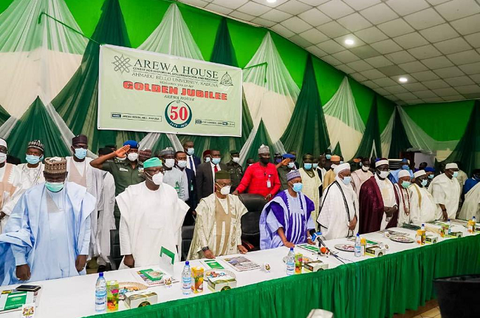
I will like to start by thanking the leadership of Arewa House for the great honour of inviting me to speak at the golden jubilee of this great institution. I also want to congratulate you, both for this historic moment and for the wonderful work you have done in the last fifty years; mobilising and interpreting our history to explain the present and illuminate the path to our future. Through a faithful and relentless engagement with history, Arewa House has indeed built a great history for itself. Congratulations.
This institution was founded with clear and deliberate intentions. One, to immortalise the legacies of the great political leader and former Premier of the defunct Northern Nigeria, Sir Ahmadu Bello. Two, to serve as a bastion of the collective memory of the people of Northern Nigeria in particular, and Nigeria at large.
As a student of history, the importance of the preservation of history in the evolution of any society is not lost on me. I must therefore commend you all for the great work that started in 1970 when Nigeria came out of an unfortunate civil war and the Interim Common Services Agency (I.C.S.A), was established to manage the common assets and liabilities of the then six Northern states and the “History of Northern Nigeria Committee” was inaugurated to, among other things, document the history of the “North”. A major recommendation of the committee was the establishment of a “Centre for Historical Documentation and Research”. Professor Abdullahi Smith, one of the foremost historians at the Ahmadu Bello University took up the pioneering role of establishing the centre. Since then, the Centre, popularly known as Arewa House has grown in leaps and bounds, moving its base in 1972 to the residential quarters and office complex of the late Premier of Northern Region, Sir Ahmadu Bello, Sardauna of Sokoto.
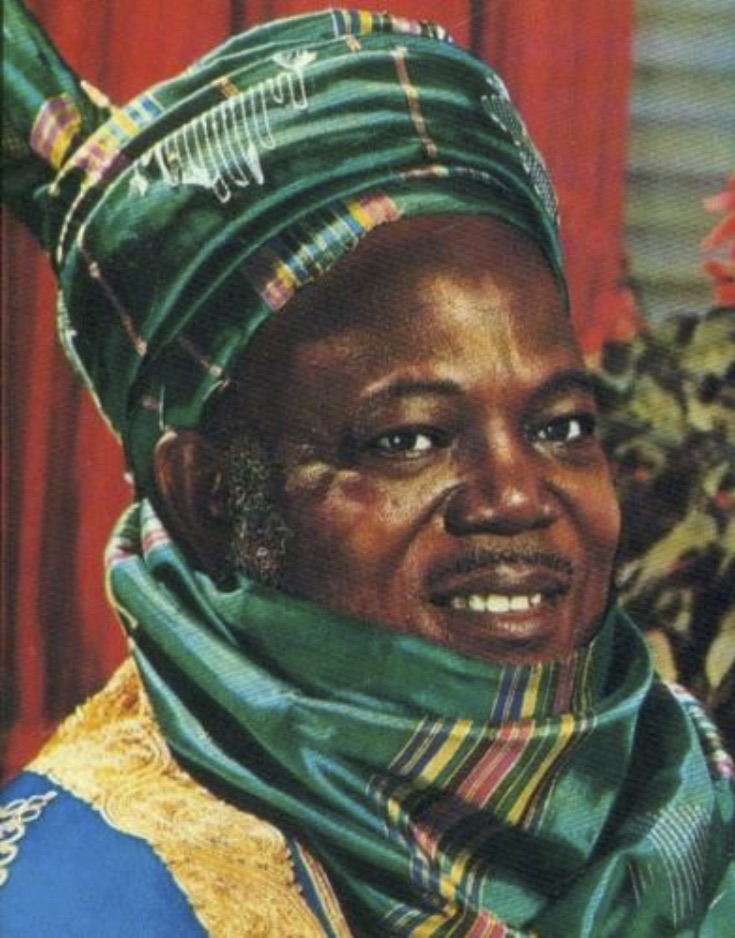
Ahmadu Bello Arewa House Kaduna
The pioneers, such as Professor Abdullahi Smith, Professor Abdullahi Mahdi, Dr. George Kwanashie, Dr Hammid Bobboyi, right up to the current leadership of Dr Shuaibu Shehu Aliyu, all ensured that within a relatively short time, the centre acquired such an international repute that it attracted scholars from all over the world. Upon the abolition of the ICSA, Arewa House was transferred to Ahmadu Bello University as a research centre, which houses an Archive, a Library, a rich collection of books and a Museum complex. I have gone down the memory lane to recall the history of Arewa House in order to underline the noble objectives as well as the deep commitment of the pioneers in establishing such an important centre of learning and knowledge sharing. No doubt, these great gentlemen must have believed that every successful society has been built on a strong foundation of knowledge and its pivotal role in human development.
I salute the memory of the great Sir Ahmadu Bello, whose central political philosophy like that of the great American founding father, Thomas Jefferson, was that every Nigerian, and indeed all human beings, are created equal and that they are all endowed by God with rights among which are life, liberty, equal opportunity, blessings and the legitimate pursuit of happiness. Throughout his life and career, the late Sarduana of Sokoto espoused high morality and intellectual virtues in the public sphere – virtues that we would all do well to revisit and pay more attention to these days. His choice of a motto for the North is “Work and Worship” and in his Christmas message to citizens in 1959, he underscored his deep belief in “unity in diversity” when he stated that “here in Northern Nigeria we have people of many different races, tribes and religions who are knit together by a common history, common interests and common ideas, the things that unite us are stronger than the things that divide us.”
Speaking in this great citadel of research and learning this morning, I must acknowledge that I am following in the footsteps of giants who had been guest speakers at the Annual Arewa House Lecture over the years. Elder Statesmen like General Yakubu Gowon, late President Shehu Shagari and my boss and leader, President Muhammadu Buhari. Respected scholars like Professor Ishaya Audu and Professor Abdullahi Smith; technocrats like Alhaji Liman Ciroma and Ambassador Jolly Tanko Yusuf, Royalties like the late Sultan Abubakar III and Oba Erediuwa of Benin and; religious leaders such as the late Abubakar Mahmud Gumi and Bishop Matthew Hassan Kukah.
The topic of my reflection is ‘’Unfinished Greatness – Towards a More Perfect Union in Nigeria”. This topic rests on a core assumption that there was a ‘greatness’ or at least a journey towards ‘greatness’, which has remained unfinished. It also asserts that it is only by building a more perfect union that we can accomplish the task of greatness for which we have demonstrated so much potentials for the better part of our history. This notion of our “Unfinished Greatness” was also expressed by the late President Umaru Musa Yar’Adua in his presidential address to commemorate Nigeria’s 49th independence anniversary on October 1, 2009. He noted thus: “Today should be a forceful reminder of unfinished greatness, of the promise yet to be fulfilled, of the dream deferred for too long, and of the work that is still outstanding.”
Indeed, not many would disagree with the view that there is a significant gap between our potentials for greatness as a country, and the reality of where we are now. It is therefore incumbent on all well-meaning Nigerians to leverage all progressive avenues and platforms such as this to interrogate our journey to greatness, our historical missteps, our accomplishments, and most importantly, the imperatives towards a “more perfect union”.
These issues have become particularly germane against the backdrop of recent events. First, the Coronavirus (COVID-19) pandemic which has undermined the economies of all countries, especially those in the global south. Nigeria was no exception, and the biggest challenge faced by governments at both the federal and sub-national levels is how to mitigate the impacts of the pandemic on our economy to enable us meet the expectations of our people. Second, the youth-led protests against police brutality #EndSARS, which eventually metamorphosed into agitations for more holistic reforms on issues of good governance, accountability and greater inclusion of the youth demography that forms the majority of our population.
Nation-Building is a Continuous Work in Progress
Renowned Nigerian author, Ben Okri in his award wining book, The Famished Road, tells of a people who, for several generations have been trying to build a road. But no matter how hard they work, they never go far in their endeavour. Even then, whatever little progress they make, is always destroyed by disasters beyond their comprehension and they would have to start all over; much like the curse of Sisyphus. Yet, every generation understands that it is its destiny to try and complete this road. History has taught them that the road would never be completed, but they never give up because each generation hopes that it would be the generation that gets the job done. Several commentators have noted that Okri’s unfinishable road is in fact, a grand metaphor for nation-building.
However, in relating this story to our country, Nigeria and our own efforts at nation-building, rather than the collapsing road, I would think in terms of an infinite wall of greatness with the natural potential to reach far beyond the skies. It is the destiny of every generation to build on this wall, and take it to a higher level, even though we know that the job will never be done because there is no real limit to how high we can build. Reflecting on our recent history, it is easy to point at our many false starts, or even several instances when we have out-rightly betrayed our generational mission. We may indeed wonder that despite the great efforts of the past sixty years, how come this great wall has barely left the foundation stage, even with our enormous wealth of bricks and mortars and expert builders?
Sixty years may be a long time in the life of an individual. But a sixty-year-old nation, is a nation yet in its infancy. Therefore, rather than despair over the failures of the past, I would be more productive that we look ahead with great hopes at the infinite future that lies ahead of us, armed with that immortal admonition from the French West Indian psychiatrist and political philosopher, Frantz Fanon that “every generation must, out of relative obscurity, discover its mission, betray it or fulfil it.”
Over the years, I have heard even presumably informed analysts referred to our country as the mistake of 1914. But was the amalgamation really a mistake? The American social philosopher, Eric Hoffer argued that divide and rule is most effective when it “fosters a multiplicity of compact bodies – racial, religious or economic – vying with and suspicious of each other.” Therefore, it is possible to argue that the toxic legacy of their ‘divide and rule’ strategy may be the reason that we have remained divided even 60 years after their rule has ended. However, to describe this amalgamation itself as a mistake would be wrong, both historically and conceptually. The hands that drew the map may not have been ours, but the map was possible only because we are here in the first place.
Every student of history will agree that as a people, if not as a country, Lord Lugard did not introduce us to ourselves. Long before the white man set his foot on our land, our people have developed an intricate network of relationships. Even though they lived in their various enclaves as independent people, they traded together, they married one another, they fought together as allies in battles and against one another as adversaries. Our cultures inter-mingled freely and produced rich synthesis of cultures, in such a way that no single culture was left pure and unaffected from this intercourse, as evidenced in new vocabularies, diets and even dress. It is also important to note that many of our empires and kingdoms were territorial rather than tribal. They luxuriated and thrived on their diversity and formed unions and alliances based on shared understanding and mutual respects. A cursory analysis of our languages and belief systems will reveal, like the Sardauna Ahmadu Bello noted, that we actually have more in common than some of our differences would suggest.
Therefore, while the colonialists may have been “culpable” for creating the country that we call Nigeria without consulting us; the task of forging a nation out of this colonial invention, rests squarely in our hands. And this task must progress from a deliberate effort to remobilise and re-interpret our history, especially our pre-colonial history. If we take a sociological, we will see clearly that we did not arrive here by chance or as mere products of colonial misadventure.
One of the most popular anecdotes that survived from our early efforts at nation building was the one credited to the late Sardauna of Sokoto, Sir Ahmadu Bello. He was said to have retorted that in coming together as a country, we do not need to forget our differences, rather we only need to recognise and respect them. It is not clear to what extent this wise admonition was taken on board by our founding fathers as they tried to grapple with the challenges of nation-building in a post-colonial Nigeria. However, embedded in the notion of “unity in diversity” is a distinct awareness that sameness is not necessarily a precondition for oneness. Perhaps, one major area that the successive generation has failed is in the tendency to stigmatise difference and weaponise diversity. We are Muslims, we are Christians, we are animists, we are Idoma, Tiv, Angas, Igbo, Hausa, Yoruba, Kanuri, Fulani and so on. We don’t need to apologise for these differences or attempt to hide them because there is nothing wrong in being different. The problem starts only when these social categorisations become the boundaries for inclusion or exclusion.
Development anthropologists have long concluded that culture plays a crucial role in development. In other words, every culture essentially contains the facilities for progress and advancement. The language in which we articulate our ideas; our diets and consumption patterns; our architectures and the way we live; our religion and how we understand our relationship with God and to the universe, our notion of ethics, morality and justice, all of these, in different forms and at different levels, provide the essential driving force for development. What this means therefore, is that the more diverse the cultures within a nation, the more resources they have for development and for progress. In essence, homogeneity is not necessarily a blessing and diversity needs not be a curse. This is why it is important to always make the distinction between our difference, which is essentially benign, and the politicisation of those difference, which constitutes the malignant cancer in the body of our nation.
One thing we do not seem to celebrate enough is our ability to live together as a diverse but unified country despite the centrifugal forces of our politics. It is in fact what makes us better than even Europeans, who have found diversity management a lot more difficult. Countries in the Balkan Peninsula have collapsed into Yugoslavia, Serbia, Bosnia, Croatia and Herzegovinia, and gave us the word, “balkanise”. Czechoslovakia became Czech and Slovak nations; the Soviet Union couldn’t hold together, and Britain still has not found a definitive answer to the Irish, Welsh and Scottish question. But imagine Nigeria with over 250 ethnic nationalities and particularly in Arewa, where no state, indeed few communities can claim to be homogeneous. Yet we have managed our diversity very well until we lost the values of tolerance, equity, fairness and justice which we inherited from our founding fathers such as the Sardauna of Sokoto.
I made reference earlier to the issue of inclusion and exclusion. It seems to me this is one important way that we have poisoned the well of our diversity. By misapplying our difference, our diversity, which should be the strength of our unity, then becomes its major threat. Because, as Shehu Usumanu Dan Fodiyo in his book Bayan Wujub al-Hijra noted, “One of the swiftest ways of destroying a State is to give preference to one particular tribe over another or to show favour to one group of people rather than another.” This view is also strongly supported in a research conducted by the Arewa Research Development Project which emphasises that issues of nation-building is being “increasingly…centred around citizenship rights and equality in accessing these rights, special and conscious efforts to safeguard minorities and disadvantaged groups, gender equality in political and socio-economic spheres of a nation, protection of cultural assets….” .
In the days of the Sardauna Sir Ahmadu Bello, respect for each other’s faith was a norm. The late Ambassador Jolly Tanko Yusuf, one of the young technocrats close to the Sardauna once shared a story here at Arewa House of how the Sardauna supported them to establish the Northern Christian Association on the 10th of April 1964. He recalled that he and Mr. Edward Manuso, the then Provincial Commissioner for Sardauna Province wrote a letter to the Premier and engaged Sardauna on the matter without any form of hostility or reprimand. His testimony was equally corroborated by late Chief Sunday Awoniyi, who said that the Sardauna ensured that Muslims and Christians had equitable access to the corridors of power. This spoke to the motto, ‘Work and Worship’ and to the values of hardwork, accountability, honesty, dedication to duty, selfless service to the people, religious tolerance, foresight and vision. Many of these values cohere to what those from my part of the country know as the “Omoluabi” ethos and what is commonly known here as Mutumin Kirki – The concept of the Good Man in Hausa, apology to Tony Kirk-Greene.
Despite the challenges that we have faced as a nation, which we sometimes unfairly exaggerate, it is important for us to constantly bear in mind that nation building is a slow and dynamic process. The awareness that nothing in nation-building is finalised should give us hope and challenge us to do better and constantly look for ways and means to build a better country, by experimentation and learning, trial and errors, setting and resetting. And this is why the operative framework of any nation is never intended as a divinely inspired scripture. Most of the challenges that we face today could not have been envisaged in 1999.
However, for us to constructively confront these issues, we must start by first conquering the demon of mutual suspicion and distrust that has poisoned our politics and subverted our will to achieve the necessary consensus that is so crucial to marching confidently towards our destiny as a great nation. If we do this, we would have scaled the major obstacle to forging a great nation out of this colonial creation and show the world that we are finally ready to embrace our true destiny as the hope of all black people everywhere.
Imperatives for a ‘More Perfect Union’
The word “perfect” is superlative. Therefore, to speak of building a “more perfect” union is to be superfluous. But embedded in that deliberate superfluity is a fundamental notion of eternal work in progress, a perpetual commitment to perfection and improvement no matter how satisfying or dissatisfying the present condition is. The second stanza of our national anthem ends with an infinitive that underlines that nation building is an unending search for perfection. It says: “To build a nation, where peace and justice shall reign.” For the next one thousand years, no matter the progress we would have made, as long as this country continue to exist, generations after generations, will continue to seek “to build a nation, where peace and justice shall reign.” It is credit to the genius of whoever invented that line that both the mission and the means to achieve the mission is captured in one simple phrase.
Permit me to return to Ben Okri, who wrote in the same book, The Famished Road, that “each new generation begins with nothing and with everything. They know all the earlier mistakes. They may not know that they know, but they do. They know the early plans, the original intentions, the earliest dreams. Each generation has to reconnect the dreams for themselves. They tend to become a little wiser, but don’t go very far. It is possible that they now travel slower, and will make bigger mistakes. That is how they are as a people. They have an infinity of hope and an eternity of struggles. Nothing can destroy them except themselves and they will never finish the road that is their soul and they do not know it.”
Okri tells us that the work of nation building is for all generations. And how far each generation is able to go on the journey to nation-building and the attainment of greatness depends on the aggregate character and predilections of that generation. Perhaps, as products of a specific period of our history and national experience, we are distrustful of change even if change is what our situation recommends. We must however take note that the generation that wants to take over from us are products of a different historical experience. A great number of young Nigerians who recently marched on the streets in protest never lived under military rule. They are akin to the people post-apartheid South Africans refer to as the “born free” generation. Because they can take the fact of democracy for granted, it is difficult for them to see democracy as an end in itself. What really matters to them is what democracy can do for them, how it can work for them and how it can help to facilitate their dreams. Nurtured in the cusp of some of the most rapid transformation in human history, they are less fearful of change and experimentation. If it is not working, they want it fixed.
This is why anyone who holds a semblance of power or authority in this country should be deeply worried by the events of the past few weeks. What started as an innocuous online protest over police brutality snowballed before our very eyes into a mass movement that assumed more frightening dimensions. From the demand to #EndSARS, we have seen vigorous demands for greater accountability, and greater efficiency in government. What I understand the youths to be saying is that we the older generation have failed them by our inability to create a system that supports their dreams and accommodate their aspirations. From the language of their protests, we can see clearly that our youths feel pushed to the margin of our nation’s socio-political and economic structures. It is incumbent on us to listen to what they are saying and a lot more that they are probably not saying yet.
For over a decade, several analysts have noted that our massive youth population could be a major demographic advantage to our country if it is properly harnessed. Years of neglect and failure to make the right investments to support this population is now, quite predictably, turning it to a major disruptive force and a time bomb. I am afraid that the bomb has started to tick, we must therefore act fast and start now to create systems that provides opportunities for our young people and make it possible for them to attain their God-given potentials.
In responding to the challenges that this moment imposes on us, we must recognise that a business-as-usual approach will no longer be sufficient. What we need is a fundamental re-engineering of our governance system in a way that will make our country work better for everyone. I understand the recent protest as a discursive signal that encapsulates the frustration of our young people at multiple levels. We must therefore engage it as such and try to focus on the opportunities that the situation presents.

Ahmadu Bello Obafemi Awolowo Nnamdi Azikwe
In our quest towards a more perfect union therefore, the main challenge is one of re-creating the union and the basis of its fundamental national association. Unfortunately, this is one issue that we have allowed to be implicated in our instinctive mutual suspicion and unnecessary brickbats. Caught in our politics of difference and otherness, devolution, decentralisation, restructuring and such other concepts have come to mean different things to different people, depending on the ethnic and regional toga they wear. Our age-long distrusts and suspicions of one another are now being tested and contested on the basis of this issue that should be the pivot of our nation-building effort. However, stripped of all opportunism and dysfunctional baggage, these concepts should simply refer to a way to re-imagine and reinvent our country to make it work well for everyone.
I will argue therefore, that our idea of restructuring must be motivated only by our generational responsibility to perfect our union and to build a nation where peace and justice shall reign based on an operative principle that true greatness lies in building a country that works for everyone, regardless of the language they speak, or how they understand and worship God.
The evolution of Nigeria’s federalism has not served our best interests and it is not surprising that we have witnessed protests at every attempts at constitutional reengineering. Two prominent examples were the 2005 Constitutional Reform Conference convened by President Obasanjo’s administration and the 2014 National Conference at the instance of President Jonathan. In the two conferences, the delicate issue remains that of restructuring (often dubbed Devolution of Power, Decentralisation, True Federalism, etc.). But for how long can we continue to run away from this issue and continue to pretend that somehow it would resolve itself someday?
In my view, structural changes (like state creation and merger) would appear to me unrealistic in a democratic dispensation. I also do not think we can easily go back to the pre-1966 regional structure or adopt the 54 federating-units proposal of the 2014 conference, which I find unrealistic, no matter the appeal or attraction. Rather, our preoccupations should be, how can we make the current structure work better for us in terms of, first our governance system; second, our economy and national productivity; and third citizenship and inclusion. There may be other issues that should be the object of our restructuring, but I consider these to be paramount. Therefore, in my view restructuring should be less about redrawing the map of Nigeria, but about building a more efficient governance system that is capable of delivering the greater good to the greatest number of our people.
In essence, our desire to build a more perfect union should be anchored on the principle of devolution of powers – that is, re-allocation of powers and resources to the country’s federating units. The reasons for this are not far-fetched. First, long years of military rule has produced an over-concentration of powers and resources at the centre to the detriment of the states. Two, the 1999 constitution, as has been argued by several observers, was hurriedly put together by the departing military authority and was not a product of sufficient inclusiveness. Part of the focus of such an exercise should be: what items should remain on the exclusive legislative list and which ones should be transferred to the concurrent list? Other topical issues include derivation principle; fiscal federalism and revenue allocation; land tenure, local government creation and autonomy; etc. All points considered, the fiscal burden of maintaining a largely inefficient and over-bloated bureaucracy is a metaphor for shooting oneself on the foot.
Again, in arriving at a position on what ought to be in the quest for a more perfect union, I wish to further say that my sentiments are more associated with strengthening the sub-national units in the re-allocation of powers and resources. The assignment of functions that would be consistent with a devolved but strengthened federal system would have a short, exclusive federal list focusing on national defence and security, macro-economy, foreign affairs, customs and excise; joint responsibility in respect of certain functions that are currently assigned exclusively to the federal government (for example, internal security and policing) and primary responsibility of the sub-national governments in respect to other functions in the second schedule of the 1999 constitution whilst the remaining powers devolve to states.
On revenue collection and sharing, the position of the Nigeria Governors’ Forum which I head is that the sharing formula should be reviewed in favour of the states, especially given the argument of devolved responsibilities to the sub-nationals. In the context of the proposed new federal structure, Governors have argued for a formula along the lines of 42% to states, 35% to the Federal and 23% to Local Governments.
Remaking Nigeria through devolution of powers and re-organisation of the federating units is an idea whose time has come. To quote Attahiru Jega again, “by working hard and rationally, scientifically, to remove all the distortions in our federal system, we would have a better functioning federation with only states as federating units; with conscious commitment to zonal cooperation among contiguous states, with local governments subsumed under states…with substantial devolution of power, responsibilities and resources from the federal government to the states, and with mechanisms of ensuring greater equality of opportunity for all and affirmative action for inclusion of the marginalised, minorities and groups discriminated against in the country…”[Jega:2017]
While we set out as a country on a somewhat progressive footing under the ‘Founding Fathers’, the reversals that we experienced mainly from the implosions that arose within the polity and the incursion of authoritarian rule, alongside its ‘civilian’ inflections, enthroned a paradigm of government and public governance that coalesced around waste, bureaucratic inefficiency, red-tapism and certainly, corrosive corruption.
Thereafter, we witnessed how the State became more and more unitary, and how the contest for the privileges of the centre took on an increasingly desperate tenor among the different groups and stakeholders in the country. While corruption and state exclusion thrived, several groups began to feel a sense of alienation, leading to their desertion of a sense of national citizenship and affiliation to the State, which they subsequently considered as being a contraption to be exploited for individual gain – a ‘cake’ that everyone needed to grab a share of. Thus, whatever could be taken out of the centre – more so illegally – was considered acceptable and just within the perception of local interest.
From the foregoing, what is evident is that most prominently at the national level, the Nigerian post-colonial state has not behaved in a fundamentally different way from the colonial state. Even though operated by Nigerians, the post-colonial state has been as alien and as predatory as its colonial predecessor. As late Professor Claude Ake argued in the early 1990s, this legacy has its roots in the colonial era when political discourse excluded not only democracy but even the idea of good government, and politics was reduced to the clash of one exclusive claim to power against another. The question therefore is: How can the business of state be serious business in a context in which public governance is largely a predatory exercise in which power is captured from citizens and not freely given by citizens; a context in which the consent of the people is not integral to the constitution of legitimacy?
Against the backdrop of the post-colonial state in Africa, it is still possible to argue that political leadership remains a major determinant of good public governance. The African experience, among others, has shown that the quality, vision, patriotism and competence of the political leadership is critical to the transformation of African states and the possibilities of good governance. In our specific experience in Nigeria, we also have instances of how the quality of the leadership has produced good system of public governance, even if few and far between. One can readily give the examples of Northern Nigeria under Sir Ahmadu Bello and Western Nigeria under Chief Obafemi Awolowo.
Yet, important as the power of leadership is, until and unless we recompose the Nigerian State and make it derive her original consent and legitimacy from the people, then we labour in vain. Contrary to the pretensions of neo-liberal economists, without a modern state there cannot be an economy or society; therefore, before public governance, there must be a modern state in the real sense. A predatory state cannot give birth to proper public governance and a sense of justice and fairness.
Those of us in public office may delude ourselves, but the events of the past few weeks have brought the contradictions of the Nigerian state into a sharper focus. Whether your immediate concern is police brutality and the need for police reform or you reflect upon the rationale and the challenges of those who insist that until Nigeria becomes a theocracy, there shall be blood and tears unlimited; whether you look towards the Niger Delta where, despite the amnesty and the industry of graft and greed that it has re-produced, there is a continuous and bloody demand for justice and equity; or you examine the endless pretexts for ethnic strife and blood-letting between the indigenous people and the “settlers” in the Middle Belt; whether you scrutinise the regular apocalyptic predictions of highly placed Nigerians about the fate of the country, or you contemplate what would happen if measures are not taken to arrest the drift, you cannot but come to the conclusion that Nigeria needs to be re-imagined and re-created.
Excellencies, Royal Highnesses, Distinguished Guests, I leave you with another famous quotation from Shehu Usmanu Dan Fodiyo which I understand was the guiding principle of Sardauna’s leadership style in life. In his book, Bayan Wujub al-Hijra referenced earlier, the great Islamic reformer said “A kingdom can endure with unbelief, but it cannot endure with injustice.” May we have the courage and the conviction to confront injustice in our country and make Nigeria work for all of us.

Dr. Kayode Fayemi Arewa House Speech
I thank you for listening.
Dr. Kayode Fayemi, CON
Governor, Ekiti State, Nigeria
Chairman, Nigeria Governors’ Forum
Kaduna, Nigeria
October 31, 2020
You may like
People
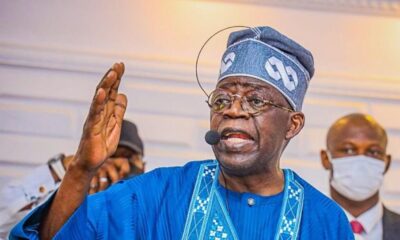

FULL LIST OF PRESIDENT TINUBU’ S MINISTERS AND THEIR PORTFOLIOS.
FULL LIST OF PRESIDENT TINUBU’ S MINISTERS AND THEIR PORTFOLIOS. The President Tinubu on Wednesday, August 16, assigned portfolios to...
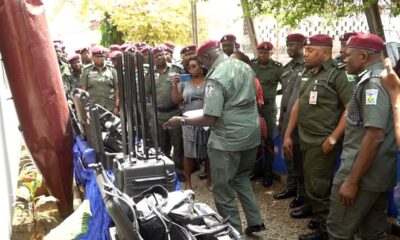

2023 GENERAL ELECTIONS SECURITY: POLICE TRAIN EOD PERSONNEL, DEPLOYS ANTI BOMB EQUIPMENT.
2023 GENERAL ELECTIONS SECURITY: POLICE TRAIN EOD PERSONNEL, DEPLOYS ANTI BOMB EQUIPMENT. As IGP Reiterates Readiness to Police 2023 General Elections....
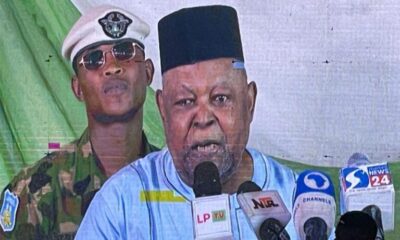

TINUBU MOURNS EXIT OF PRO-DEMOCRACY FIGHTER, NATIONALIST, COMMODORE DAN SULEIMAN.
TINUBU MOURNS EXIT OF PRO-DEMOCRACY FIGHTER, NATIONALIST, COMMODORE DAN SULEIMAN. Air Commodore Suleiman was a prominent member of the National...
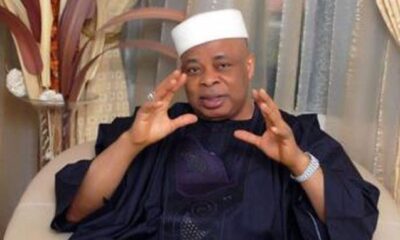

TINUBU’S EMERGENCE BENEFICIAL TO IGBO PEOPLE – FORMER SENATE PRESIDENT, KEN NNAMANI.
TINUBU’S EMERGENCE BENEFICIAL TO IGBO PEOPLE – FORMER SENATE PRESIDENT, KEN NNAMANI. The people of the southeast region are set...


IGP USMAN LAUNCHES STOLEN VEHICLE REPORT PORTAL TO CURB CAR THEFT.
IGP USMAN LAUNCHES STOLEN VEHICLE REPORT PORTAL TO CURB CAR THEFT. NPF Digitalized Central Motor Registry (CMR) Command Centre Commissioned...
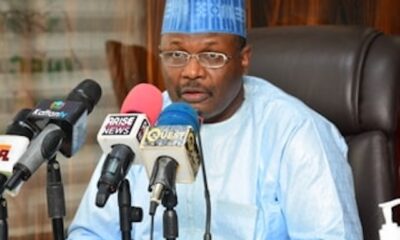

2023 POLLS: INEC INTRODUCED NEW TECH-SOLUTION TO COMBAT ELECTORAL FRAUD.
2023 POLLS: INEC INTRODUCED NEW TECH-SOLUTION TO COMBAT ELECTORAL FRAUD. In a build-up to the 2023 polls, INEC and other...
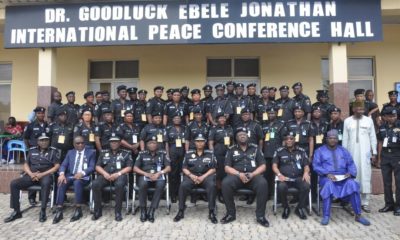

INSURANCE POLICY: IGP RESTATES COMMITMENT TO ENHANCED WELFARE FOR POLICE OFFICERS.
INSURANCE POLICY: IGP RESTATES COMMITMENT TO ENHANCED WELFARE FOR POLICE OFFICERS. Flags Off 3-Day Workshop for NPF Insurance Desk Officers,...
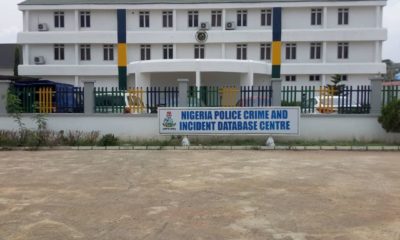

NIGERIA POLICE CRIMINAL DATABASE UPGRADED TO ENHANCE FORENSIC INVESTIGATION.
NIGERIA POLICE CRIMINAL DATABASE UPGRADED TO ENHANCE FORENSIC INVESTIGATION. As IGP Usman Orders Comprehensive Training of Personnel. The Upgrade will...
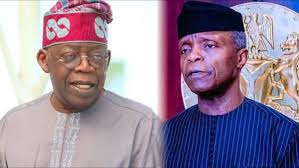

SOUTHWEST LEADERS SET TO MEET TINUBU, OSINBAJO, FAYEMI AND AMOSUN OVER 2023 PRESIDENCY.
SOUTHWEST LEADERS SET TO MEET TINUBU, OSINBAJO, FAYEMI AND AMOSUN OVER 2023 PRESIDENCY. Presidential aspirants on the APC platform will...
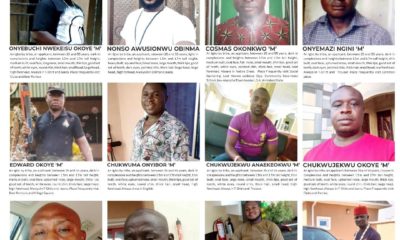

ISU-ANIOCHA KILLINGS: NIGERIA POLICE DECLARE 12 WANTED FOR CONSPIRACY, MURDER, ARMED ROBBERY, UNLAWFUL POSSESSION OF FIREARMS, MALICIOUS DAMAGE. The Nigeria Police...
1King casino Türkiye Casino ve Bahis — Mobil ve Masaüstü
Ugurlu Bahis Beledcisi Most Bet ucun
Bahis Dunyasinda MostBet ile Basariyi Yakalayin
Азино777 Официальный Сайт Вход

FULL LIST OF PRESIDENT TINUBU’ S MINISTERS AND THEIR PORTFOLIOS.
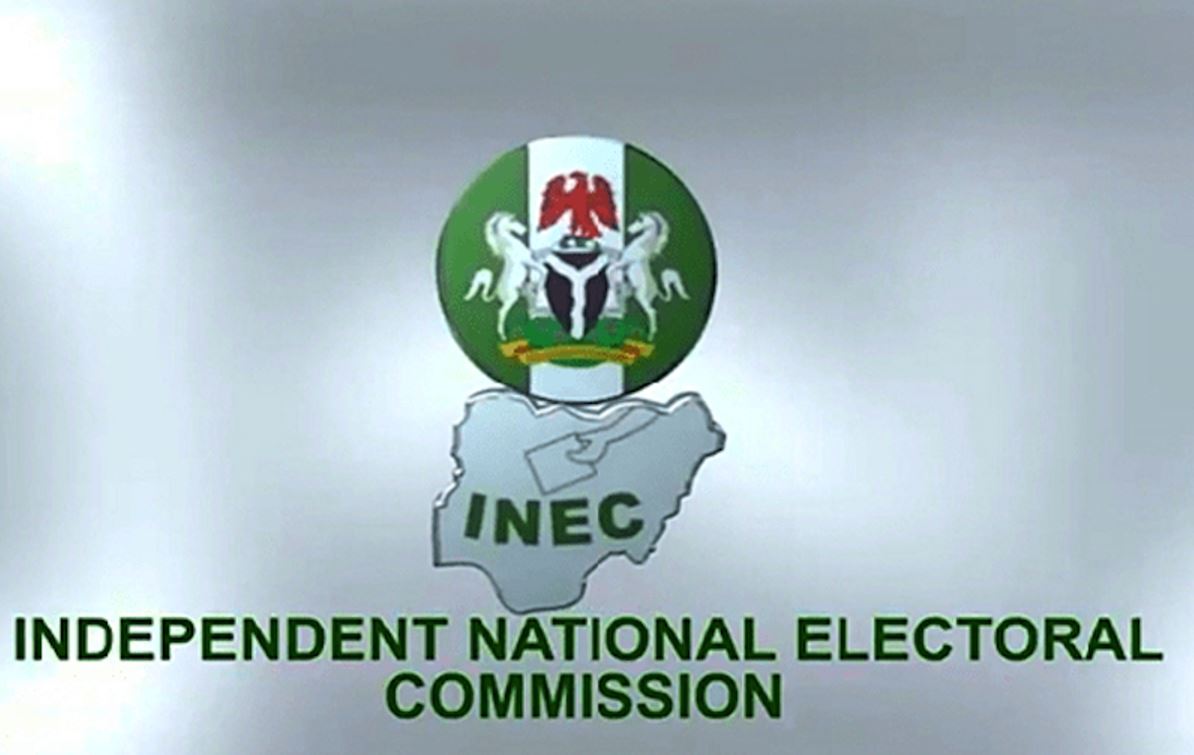
INEC WARDS AND POLLING UNITS IN THE 20 LGAS OF OGUN STATE
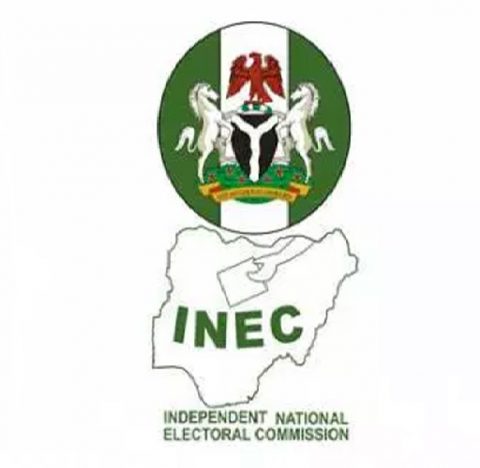
INEC WARDS AND POLLING UNITS IN ADO ODO/OTA LGA OF OGUN STATE

HISTORY OF YEWALAND (FORMERLY EGBADO)
PROFILE OF PROFESSOR (SENATOR) AFOLABI OLABIMTAN

HISTORY OF MADOGA
Trending
-

 Ogun State News5 years ago
Ogun State News5 years agoINEC WARDS AND POLLING UNITS IN THE 20 LGAS OF OGUN STATE
-

 Community News5 years ago
Community News5 years agoINEC WARDS AND POLLING UNITS IN ADO ODO/OTA LGA OF OGUN STATE
-

 Culture & Tradition5 years ago
Culture & Tradition5 years agoHISTORY OF YEWALAND (FORMERLY EGBADO)
-
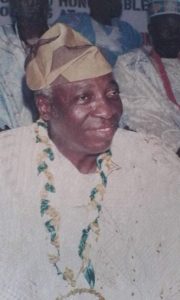
 Culture & Tradition5 years ago
Culture & Tradition5 years agoPROFILE OF PROFESSOR (SENATOR) AFOLABI OLABIMTAN
-
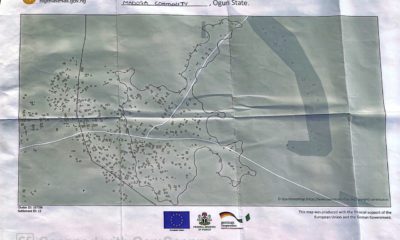
 Community News4 years ago
Community News4 years agoHISTORY OF MADOGA
-

 Community News5 years ago
Community News5 years agoINEC WARDS AND POLLING UNITS IN IPOKIA LGA OF OGUN STATE
-
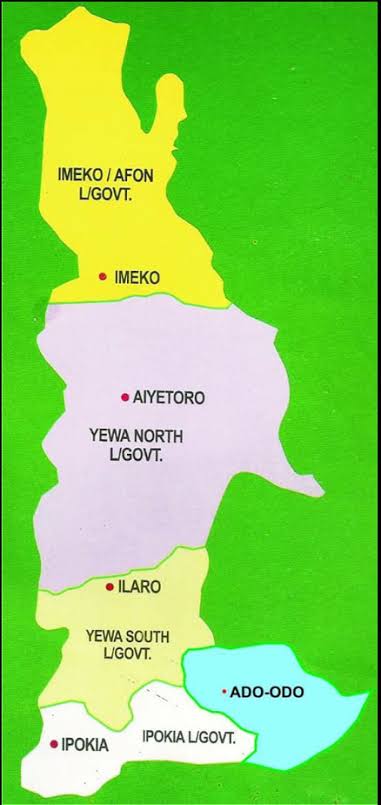
 Community News5 years ago
Community News5 years agoNAMES OF TOWNS AND VILLAGES IN AWORI AND YEWALAND
-
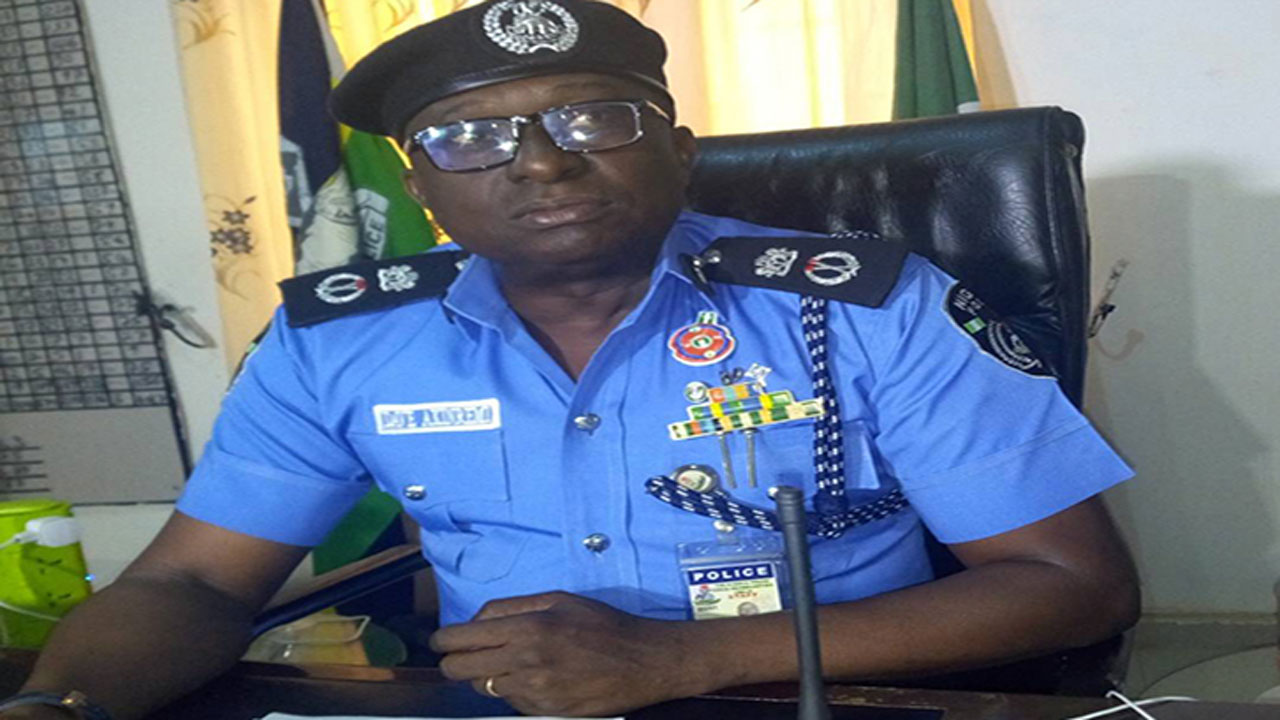
 Community News4 years ago
Community News4 years agoRETIRED COMMISSIONER OF POLICE, DAVID AJIBOLA AKINREMI BECOMES AMOTEKUN COMMANDANT IN OGUN.
